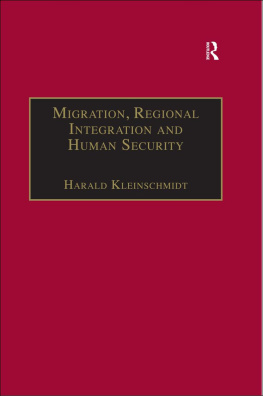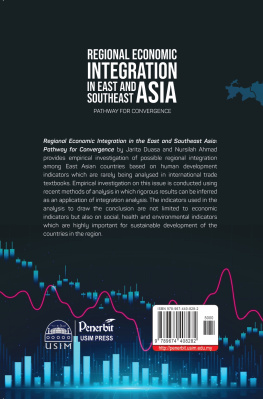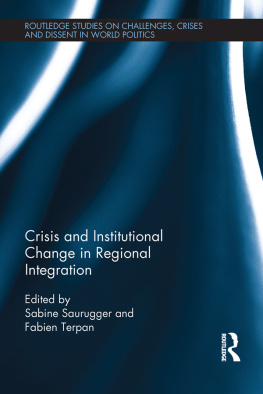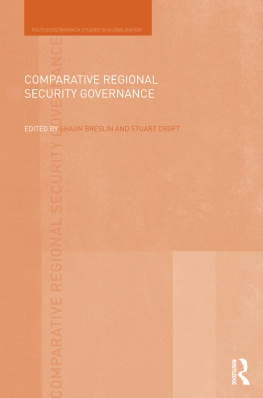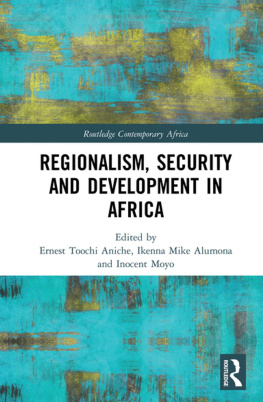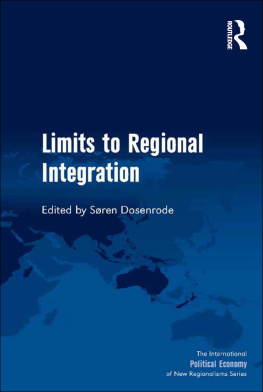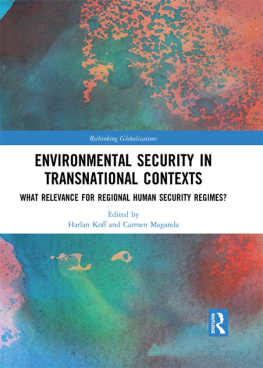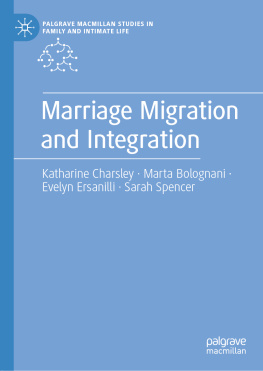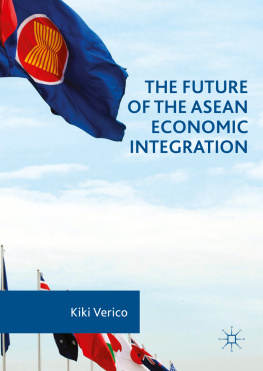Harald Kleinschmidt - Migration, Regional Integration and Human Security
Here you can read online Harald Kleinschmidt - Migration, Regional Integration and Human Security full text of the book (entire story) in english for free. Download pdf and epub, get meaning, cover and reviews about this ebook. year: 2002, publisher: Routledge, genre: Politics. Description of the work, (preface) as well as reviews are available. Best literature library LitArk.com created for fans of good reading and offers a wide selection of genres:
Romance novel
Science fiction
Adventure
Detective
Science
History
Home and family
Prose
Art
Politics
Computer
Non-fiction
Religion
Business
Children
Humor
Choose a favorite category and find really read worthwhile books. Enjoy immersion in the world of imagination, feel the emotions of the characters or learn something new for yourself, make an fascinating discovery.
- Book:Migration, Regional Integration and Human Security
- Author:
- Publisher:Routledge
- Genre:
- Year:2002
- Rating:4 / 5
- Favourites:Add to favourites
- Your mark:
- 80
- 1
- 2
- 3
- 4
- 5
Migration, Regional Integration and Human Security: summary, description and annotation
We offer to read an annotation, description, summary or preface (depends on what the author of the book "Migration, Regional Integration and Human Security" wrote himself). If you haven't found the necessary information about the book — write in the comments, we will try to find it.
Migration, Regional Integration and Human Security — read online for free the complete book (whole text) full work
Below is the text of the book, divided by pages. System saving the place of the last page read, allows you to conveniently read the book "Migration, Regional Integration and Human Security" online for free, without having to search again every time where you left off. Put a bookmark, and you can go to the page where you finished reading at any time.
Font size:
Interval:
Bookmark:
Maykel Verkuyten, ERCOMER Utrecht University
Helen Kopnina
0 7546 4170 8
Kathy Burrell
0 7546 4574 6
Kristof Tamas and Joakim Palme
0 7546 4692 0

2 Park Square, Milton Park, Abingdon, Oxon OX14 4RN
711 Third Avenue, New York, NY 10017, USA
Migration, regional integration and human security : the
formation and maintenance of transnational spaces.
(Research in migration and ethnic relations series)
1.Emigration and immigration 2.Emigration and immigration
Government policy 3.International economic integration
Social aspects
I.Kleinschmidt, Harald, 1949
304.8'2
Migration, regional integration and human security : the formation and maintenance of Transnational spaces / edited by Harald Kleinschmidt.
p. cm. -- (Research in migration and ethnic relations series)
Includes bibliographical references and index.
ISBN 0-7546-4646-7
1. Emigration an immigration--Government policy. 2. Regionalism. I. Kleinschmidt, Harald, 1949- II. Series
325--dc22
ISBN 9781138259256(pbk)
Harald Kleinschmidt
Eimi Watanabe
Salvatore Ciriacono
Harald Kleinschmidt
Reinhard Drifte
Leslie E. Bauzon
Keiji Maegawa
Wolfgang Hein
Andreas Bltte
Motoko Shuto
Dietmar Herz
Kazu Takahashi
Henning Eichberg
Harald Kleinschmidt
Introduction
Font size:
Interval:
Bookmark:
Similar books «Migration, Regional Integration and Human Security»
Look at similar books to Migration, Regional Integration and Human Security. We have selected literature similar in name and meaning in the hope of providing readers with more options to find new, interesting, not yet read works.
Discussion, reviews of the book Migration, Regional Integration and Human Security and just readers' own opinions. Leave your comments, write what you think about the work, its meaning or the main characters. Specify what exactly you liked and what you didn't like, and why you think so.

